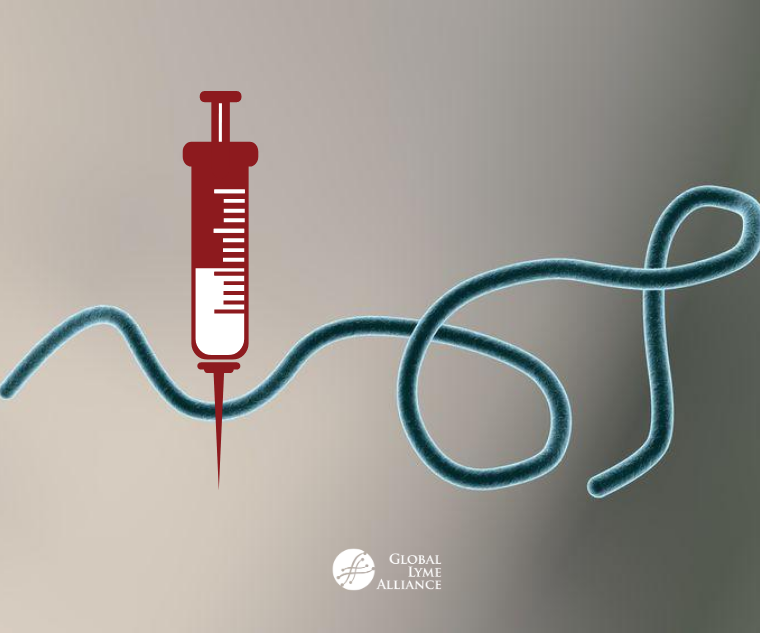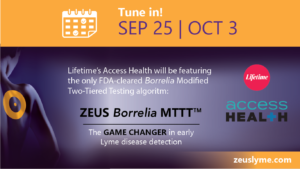
ZEUS Scientific announces FDA clearance of its ZEUS Borrelia Modified Two-Tiered Testing™ algorithm, a paradigm shift in lab testing for Lyme disease.
ZEUS Scientific, a leading global diagnostic solutions company announced the launch of its ZEUS Borrelia Modified Two-Tiered Testing™ (MTTT) algorithm following clearance from the U.S. Food and Drug Administration. Approval of this MTTT algorithm represents a true paradigm shift in laboratory testing for Lyme disease. Lyme disease, caused by the bacterium Borrelia burgdorferi, is the most common vector-borne disease in the United States and is transmitted to humans through the bite of infected blacklegged ticks. Cases of Lyme disease have exploded since the 1990s to more than 427,000 cases annually and have been found in all 50 states. The number of cases in Europe is also on the rise. Chris Howard, Chief Commercial Officer at ZEUS Scientific stated, “With nearly 30% of early Lyme disease cases being potentially missed by the current STTT algorithm due to the insensitivity of immunoblot tests(8), we are ecstatic to have successfully improved one of the most challenging aspects of diagnosis: detecting the disease early, before a robust immune response has been developed by some patients.” Howard continued, “Our ZEUS Borrelia MTTT™ algorithm detected up to 30% more acute Lyme disease cases relative to the STTT, significantly reducing the number of missed clinically positive patient samples(1) while maximizing lab efficiency with fully automatable immunoassays.” Clinical labs have been burdened by the complexities and subjectivity of immunoblot testing for years, often needing to send these tests out to reference labs, leading to longer turnaround time for test results, increased resource allocation and higher costs. The advantages of implementing ZEUS Borrelia MTTT™ are as follows. The all-ELISA algorithm is the simple, sensitive and specific alternative that is changing the game in Lyme disease testing. ZEUS Borrelia MTTT™ Advantages- Reduces the number of missed clinically positive patient samples, especially in early Lyme (stage 1 and 2)
- Removes burden of blots and subjectivity of readings
- Enables simple and flexible first-tier and second-tier testing
- Improves overall lab workflow and cost efficiencies, eliminating send-outs
- Improves turnaround time
 Learn more about ZEUS Borrelia MTTT™ for Lyme disease at
zeuslyme.com.
Learn more about ZEUS Borrelia MTTT™ for Lyme disease at
zeuslyme.com.





-2.jpg)

